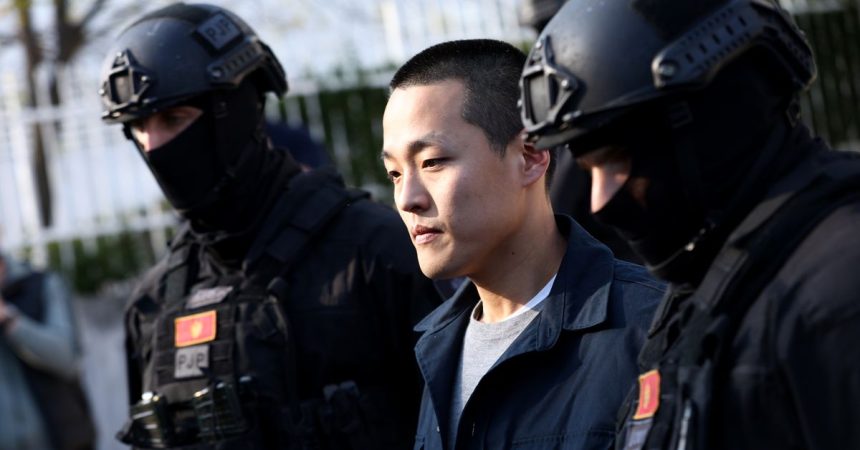The Montenegrin Ministry of Justice has announced its decision, based on a legal assessment, to approve the extradition request from the United States for Do Kwon, the embattled cryptocurrency entrepreneur. The Ministry’s statement, translated from the original Montenegrin, asserts that the legal criteria for extradition, as defined by Montenegrin law, largely support the US claim. This decision throws another wrench into the ongoing legal battle over Kwon’s future, adding a new layer of complexity to an already convoluted international legal proceeding. The statement, however, leaves crucial questions unanswered, offering no timeline for Kwon’s potential transfer to US custody. This ambiguity underscores the intricate nature of the case and the potential for further legal maneuvering before any final resolution is reached.
The lack of a definitive timeline for Kwon’s extradition raises the specter of protracted legal proceedings and potential appeals. The Ministry’s statement does not elaborate on the specific legal grounds for their decision, nor does it address the potential next steps in the process. This leaves considerable room for speculation and uncertainty regarding the ultimate outcome of the extradition request. The absence of clarity regarding the finality of the decision further complicates matters, especially in light of a prior ruling by Montenegro favoring South Korea’s extradition request. This creates a legal predicament where two countries are vying for Kwon’s extradition, each with seemingly valid legal claims.
The apparent conflict between the two extradition rulings—one in favor of South Korea and the most recent in favor of the United States—introduces a significant legal and diplomatic challenge. Montenegro now faces the complex task of navigating these competing claims. This will likely involve careful consideration of legal precedents, diplomatic relations, and the specific nature of the alleged offenses in both jurisdictions. The conflicting decisions underscore the intricacies of international law and the difficulties in harmonizing legal systems across different sovereign nations. The ultimate decision regarding which country will receive custody of Kwon could set a precedent for future extradition cases involving multiple jurisdictions.
Furthermore, the Ministry’s statement does not address how the Montenegrin legal system intends to reconcile these competing claims. It’s unclear what legal mechanisms are in place to resolve such a conflict, and whether precedence will be given to the chronological order of the requests, the severity of the alleged crimes in each jurisdiction, or other factors. The ensuing legal proceedings will likely involve detailed analysis of the extradition treaties between Montenegro and both the United States and South Korea. This analysis will need to consider the specific provisions of each treaty, including the grounds for extradition, the applicable legal standards, and any exceptions or limitations.
The situation is further complicated by the nature of the charges against Kwon. In both the US and South Korea, he faces allegations related to the collapse of Terraform Labs and the subsequent implosion of the TerraUSD stablecoin and Luna cryptocurrency. These events triggered a massive market downturn, wiping out billions of dollars in investor value and causing significant disruption in the cryptocurrency market. The magnitude of the financial fallout adds another layer of pressure on Montenegro to make a carefully considered decision about Kwon’s extradition. The legal arguments in both countries will likely center on the interpretation of financial regulations and the application of fraud and securities laws to the complex world of cryptocurrency.
Ultimately, Montenegro’s decision on which country will receive Kwon will have significant implications, not only for Kwon himself, but also for the broader cryptocurrency industry. The outcome could set a precedent for future cases involving international cryptocurrency fraud and influence how regulators approach the oversight and enforcement of this still-developing sector. The international community will be watching closely as Montenegro navigates this complex legal and diplomatic quagmire, eager to understand how the conflicting extradition requests are resolved and what implications this will have for the future of cryptocurrency regulation. The legal precedent established by this case could shape the future landscape of international cryptocurrency law and influence how regulatory bodies approach oversight and enforcement within this evolving technological and financial domain.



